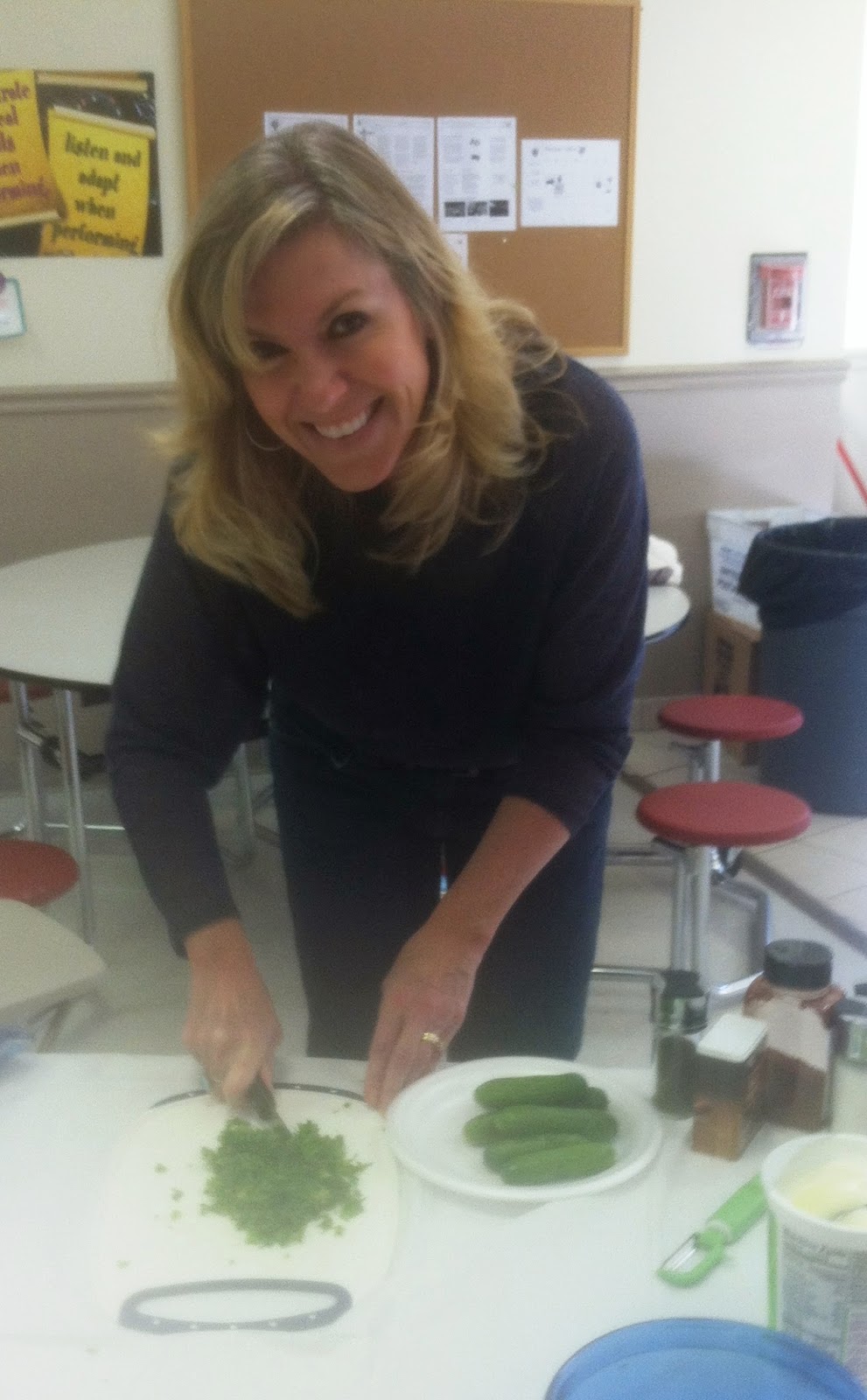DC Environmental Film Festival
Carnegie Institution for Science
Elihu Root Auditorium
1530 P St., NW
Cost: Free
 |
We look pretty happy for people who just learned that
every single product they use is rife with aluminum. |
Let's just say that March's activity was interesting before it even began. We initially planned to attend a pickling class at the Living Social building. (
Opening lines for the post about Pickling: Prior to tonight's activity, if someone had asked if we liked pickling, we would have answered (with coquettish laughs), "We don't know, you naughty boy...we've never pickled.")
However, after deciding on a date and buying tickets, Dilettante Amy had to cancel as she had a retirement party to attend the same night that she had forgotten about. Then, Dilettante Amanda received a notice that the pickling class had been cancelled, although Dilettante Kathleen did not. After approximately 87,436 e-mails and calls to Living Social, Dilettante Kathleen finally talked to a human being who confirmed that, in fact, the pickling class had been cancelled. (Though, not yet refunded. Living Social customer service is awful.)
Anyway, in a rush to find a replacement activity on a Wednesday night, we actually came up with several, and settled on the DC Environmental Film Festival, because this movie sounded really interesting:
LA SOURCE (USA, 2012, 71 min.)
Presented in celebration of World Water Day
Each day, the villagers of a small, rural community called La Source in Haiti must choose between enduring a long, treacherous walk to retrieve clean water or drinking contaminated water from a nearby river. Since he was a teenager, Josue Lajeunesse, along with his brother Chrismedonne, have dreamed of remedying this problem for their people. In 1989, Josue moved to New Jersey where he found employment as a custodian at Princeton University and as a taxi driver, allowing him to send money home to La Source so that he and Chrismedonne, a bricklayer in La Source, could properly channel the water from the mountain into their village. The film follows
the Lajeunesse brothers as they work together to rally the support of a group of Princeton students, a Los Angeles-based charity called Generosity Water and the people of La Source to fulfill their dream of improving the conditions of their impoverished village. The film captures the story of one man, empowered by a vision, who was able to ignite the passion of people thousands of miles away to change lives in La Source forever.
In Creole and English. Directed by Patrick Shen. Produced by Patrick Shen, Brandon Vedder and Jordan Wagner.
Discussion with filmmaker
Patrick Shen and
Raymond Joseph, Former Haitian Ambassador to the United States and Founder, A Dollar A Tree For Haiti.
And yet, when we walked into that theater at the appointed time and sat (and gagged over what the woman behind us brough to eat during the movie), this movie began playing:
THE AGE OF ALUMINUM (Austria/Germany, 2013, 90 min.)
World Premiere Aluminum is a fascinating metal: light, stainless and easy to process. One hundred years ago, it was still so exotic that it was presented at world expositions. The metal has become an essential part of our daily lives. We drink from aluminum cans, use aluminum-containing deodorants and sunscreens and it increases the effectiveness of vaccines. But, currently, critical voices are being heard about this metal. Large amounts of resources and energy are needed for the production of aluminum. The extraction can lead to environmental disasters of considerable dimension, as happened in Hungary almost one year ago. Furthermore, scientists suspect that the toxic effect of aluminum could be having an influence on diseases such as Alzheimer’s and allergies.
Directed by Bert Ehgartner. Produced by Kurt Langbein.
Panel discussion, moderated by
Claire Dwoskin, child health advocate and Founder, Children's Medical Safety Research Institute, with filmmaker
Bert Ehgartner;
Dr. Jim Olds, Director and Chief Academic Unit Officer, Krasnow Institute for Advanced Study and Krasnow University Professor of Molecular Neuroscience;
Katharine Redford, Esq., Co-Founder and Director, EarthRights International (ERI) and
Dr. Christopher Shaw, Professor, Department of Ophthalmology and Visual Sciences, University of British Columbia.



































.JPG)















